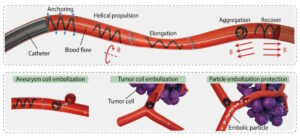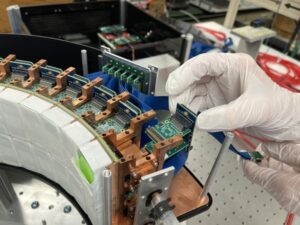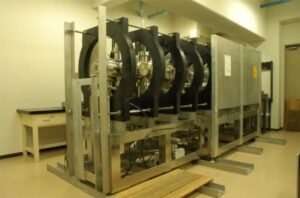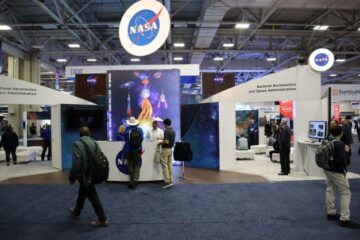Petrophysicist Oliver Grimston talks about his career at British oil and gas company bp, from taking part in its graduate programme to his current role as the firm’s chief of staff in Iraq
Like so many others, I have always been fascinated by science and maths, the disciplines that underpin the physical world. This curiosity has fuelled a desire to keep learning about the world around me and broaden my horizons, eventually bringing me to the energy industry and my current role as bp’s chief of staff in Iraq. I believe that the career path I have followed demonstrates how pursuing your passion, and applying it to a wider purpose, can take you to places you never imagined you could reach.
A technical grounding
I joined bp in 2013, having applied for a graduate internship at the company after completing my BSc in physics at the University of Leeds. I was fortunate enough to build my internship into my MSc in the exploration of geophysics, which bp sponsored, meaning I was able to gain hands-on experience alongside my academic studies. After that, I joined bp on a full-time basis through its “Challenge” graduate programme, and I have been with the company ever since.
My first role as a petrophysicist was highly technical. As a discipline, petrophysics is all about understanding how fluids flow through a reservoir and how to extract oil and gas from it in the most efficient way. My job concentrated on gaining a deeper understanding of how we could improve our reservoir modelling by integrating seismic and well-log data, so production could be managed more efficiently. I then had an opportunity to take on a reservoir-management role in which I was focused on understanding how the oil and gas reservoirs perform.
A big moment for me came when I was first asked to move to Iraq in 2018, taking on a lead petrophysicist position. I headed a team of 12 petrophysicists overseeing the acquisition of production logging data supporting the development of the oil field. And then, just before the start of the pandemic, I moved into my current job.
I am now bp’s chief of staff in Iraq, where I support the day-to-day running of the Rumaila Operating Organization (ROO) – a joint venture between bp, PetroChina and Basra Oil Company, and the SOMO (State Oil Marketing Organization) businesses run by the Iraqi government. The consortium manages the Rumaila oil field, the third largest in the world, which produces around 2% of the world’s oil production and employs close to 7000 people.
My current role is much more far-reaching, and I like to describe myself as “the eyes and ears” of the business. I am responsible for updating the general manager on what is – and is not – going well, and building strategies and plans for the business, among other things. I also facilitate correspondence between the Iraqi government and the oil field. I believe that the strong technical grounding I acquired in the early stages of my career has given me the confidence to have the right conservations at the right level, understand the wide range of challenges facing the business and increase its overall performance.
However, I would not be where I am today if I had not stepped out of my comfort zone and kept an open mind at the beginning of my professional life. When you first join a company, it is so important to be open and available, to avoid saying no to opportunities, and to take on the different challenges that arise. By asking as many questions as possible, making sure you understand how the business works, and having the right conversations with the right people, you will set yourself up for success later in your career. I would also stress the importance of having a strong technical understanding – a quality that will let you influence decisions on how the business is operated and fully understand the uncertainty bounds, and risks, when making strategic decisions.
Global nature, local impact
It may sound contradictory, but two aspects of my position that I value most are the global nature of my role and the local impact of my work.
As an employee at a company like bp, which has operations in every continent, I have been fortunate enough to travel and work in North America, Europe and the Middle East. Working with up to 70 nationalities on-site at ROO, as well as alongside professionals in Iraq, offers you so many different perspectives to learn from. Becoming adept at integrating diverse ideas and experiences has strengthened me as a professional and supports the overall business.
At the same time, it is a privilege to observe the impact of our work on the communities in which we operate. The ROO generates close to 35% of Iraq’s total gross domestic product in the oil field we lead, and our work to develop the field helps Iraq to invest in its people, services and infrastructure.
We also help upskill the local workforce, who will take over the field in the future, so it is our responsibility to leave a positive legacy and equip the community with the necessary skills to take over the reins.
The world is changing at a frantic pace. The energy mix of the future will be drastically different from that of today, as the world embarks on the transition from traditional fossil fuels to low-carbon sources of energy. We know that global production of oil and gas will decrease across the world but will still be needed to power the energy transition. If we want to remain competitive, which is a major objective for my role, I’ll be looking at how to ensure that the oil and gas we are producing is the cheapest and has the cleanest barrels, and that no resource, such as the methane gas emitted, is wasted. I truly believe that physics, a discipline that makes us question the world around us and find solutions to the world’s greatest problems, will play a critical role in the transition to this future.
A hunger to learn
To those at the start of their professional journey, my main advice would be to think about your passion, reflect on what drives your sense of purpose, and then choose a career that creates opportunities for discovery, empowerment and self-improvement. At the same time, let your curiosity guide you. A hunger to learn more and broaden your own horizons will open you up to a wide array of exciting challenges and opportunities in the future.













